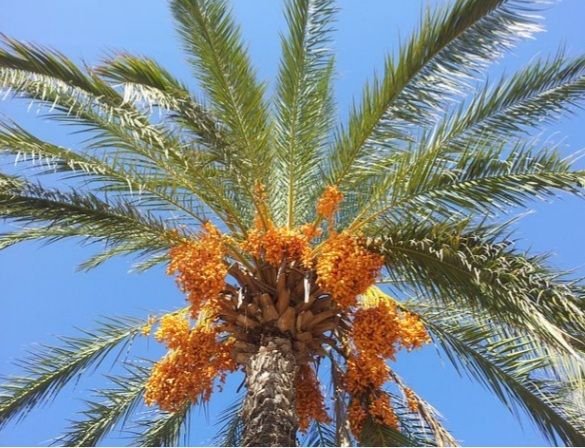Parables In The Qur’an – A Parable Concerning The Bearer of Useful Knowledge Who Does Not Reap Its Benefits – Part 1
In The Name of Allah, The Most Merciful, The Bestower of Mercy.
Allah, The Exalted, says:
مَثَلُ ٱلَّذِينَ حُمِّلُوا۟ ٱلتَّوْرَىٰةَ ثُمَّ لَمْ يَحْمِلُوهَا كَمَثَلِ ٱلْحِمَارِ يَحْمِلُ أَسْفَارًۢا بِئْسَ مَثَلُ ٱلْقَوْمِ ٱلَّذِينَ كَذَّبُوا۟ بِـَٔايَٰتِ ٱللَّهِ وَٱللَّهُ لَا يَهْدِى ٱلْقَوْمَ ٱلظَّٰلِمِينَ
The likeness of those who were entrusted with the (obligation of the Torah) (i.e. to obey its commandments and to practice its legal laws), but who subsequently failed in those (obligations), is the likeness of a donkey who carries huge burdens of books. How bad is the example (or the likeness) of people who deny the Ayat (proofs, verses, signs, revelations, etc.) of Allah. And Allah does not guide the people who are Zalimun (polytheists, wrong-doers, unbelievers etc.). [Al-Jumu’ah 5]
After Allah mentions His favour bestowed upon this Ummah, to whom He sent the unlettered Prophet, along with the unique virtues and merits that Allah has granted them, which surpasses those of both the earlier and later generations, including the People of the Scripture who pride themselves on being erudite scholars and possessing superior knowledge, Allah then mentions those among the Jews and Christians who were entrusted with the Torah, commanding them to learn and act upon it, however, they failed to fulfill those obligations and upheld their trust, thus having no virtue (over others). They are similar to a donkey carrying books of knowledge on its back, so does it benefit from them, or is its only role to carry them? This is similar to those Jewish scholars who did not act upon the teachings of the Torah, in which the greatest command is to follow Muhammad, the glad tidings about him, and belief in the Quran that was revealed to him. The one like this has not gained anything from the Torah other than loss upon himself and the proofs established against him! This parable is fitting for their situation. [An Excerpt from Tafsir as-Sadi]
Nevertheless, there were indeed scholars within their ranks who acknowledged the Prophethood of Muhammad, peace and blessings of Allah be upon him, as stated by Allah.
لَيْسُوا۟ سَوَآءً مِّنْ أَهْلِ ٱلْكِتَٰبِ أُمَّةٌ قَآئِمَةٌ يَتْلُونَ ءَايَٰتِ ٱللَّهِ ءَانَآءَ ٱلَّيْلِ وَهُمْ يَسْجُدُونَ
يُؤْمِنُونَ بِٱللَّهِ وَٱلْيَوْمِ ٱلْءَاخِرِ وَيَأْمُرُونَ بِٱلْمَعْرُوفِ وَيَنْهَوْنَ عَنِ ٱلْمُنكَرِ وَيُسَٰرِعُونَ فِى ٱلْخَيْرَٰتِ وَأُو۟لَٰٓئِكَ مِنَ ٱلصَّٰلِحِينَ
Not all of them are alike; a party of the people of the Scripture stand for the right, they recite the Verses of Allah during the hours of the night, prostrating themselves in prayer. They believe in Allah and the Last Day; they enjoin Al-Ma’ruf (Islamic Monotheism, and following Prophet Muhammad) and forbid Al-Munkar (polytheism, disbelief and opposing Prophet Muhammad); and they hasten in (all) good works; and they are among the righteous. [Aal Imran 113-114]
Allah states about those followers of Prophet Isa, peace be upon him, who accepted the Prophethood of Muhammad, peace and blessings of Allah be upon him:
وَإِذَا سَمِعُوا۟ مَآ أُنزِلَ إِلَى ٱلرَّسُولِ تَرَىٰٓ أَعْيُنَهُمْ تَفِيضُ مِنَ ٱلدَّمْعِ مِمَّا عَرَفُوا۟ مِنَ ٱلْحَقِّ يَقُولُونَ رَبَّنَآ ءَامَنَّا فَٱكْتُبْنَا مَعَ ٱلشَّٰهِدِينَ
وَمَا لَنَا لَا نُؤْمِنُ بِٱللَّهِ وَمَا جَآءَنَا مِنَ ٱلْحَقِّ وَنَطْمَعُ أَن يُدْخِلَنَا رَبُّنَا مَعَ ٱلْقَوْمِ ٱلصَّٰلِحِينَ
And when they (who call themselves Christians) listen to what has been sent down to the Messenger (Muhammad), you see their eyes overflowing with tears because of the truth they have recognised. They say: “Our Lord! We believe; so write us down among the witnesses. And why should we not believe in Allah and in that which has come to us of the truth (Islamic Monotheism)? And we wish that our Lord will admit us (in Paradise on the Day of Resurrection) along with the righteous people (Prophet Muhammad and his Companions).” [Al-Ma’idah 83-84]








